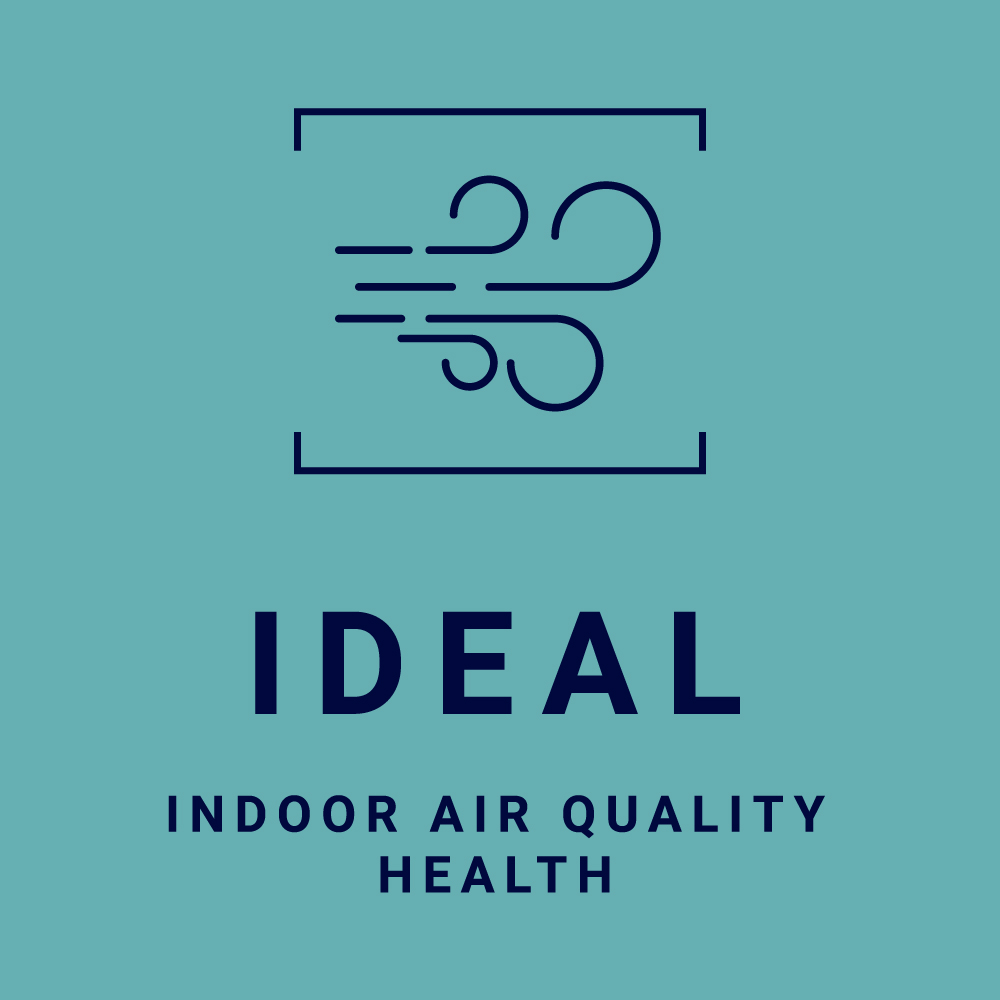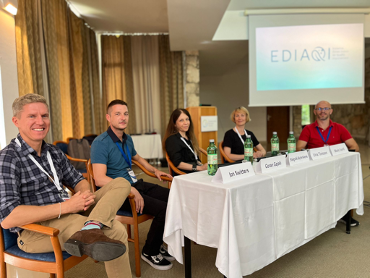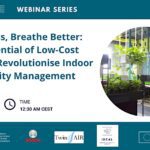The EDIAQI project is a proud member of the IDEAL cluster projects, a Horizon Europe group of projects under the same call, with the collective aim to advance knowledge, technologies, and strategies for improving Indoor Air Quality (IAQ) and its impact on health. A primary objective of the IDEAL Cluster is to contribute to the European Union’s Zero Pollution Action Plan (ZPAP), equipping policymakers with knowledge, research, and tools for effective legislation.
In furtherance of these goals and addressing critical knowledge gaps, the EDIAQI project recently hosted a dedicated session at the International Air Protection Conference 2023 in Dubrovnik, Croatia. Co-organised by EDIAQI consortium members, this conference convened air quality experts and stakeholders from across Europe from 20th to 23rd of September, fostering discussions on the latest research and policies. The conference covered diverse topics, including air quality management and the intricate relationship between air pollution and climate change. Representatives from other IDEAL Cluster projects, such as K-HEALTHinAIR, also attended the event.
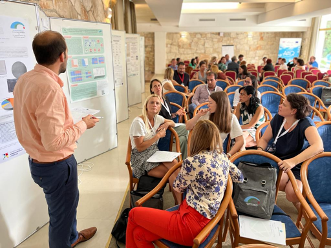
However, the dedicated IAQ session led by the EDIAQI Project was a notable highlight. During the workshop, participants formed three groups, discussing and identifying common challenges in addressing IAQ in Europe. The following key points emerged:
- Regional Disparity: Varying IAQ standards and awareness among EU member states hinder the establishment of uniform measures.
- Diverse Living Standards: Disparities in living standards across Europe impede consistent IAQ enhancements.
- Dependency on Regulatory Changes: Some local authorities await more stringent EU regulations before undertaking substantial IAQ improvements.
- Low Awareness Among Decision-Makers: Decision-makers often lack IAQ awareness, necessitating increased engagement with city municipalities.
- IAQ Issues in Specific Regions: Certain regions face IAQ challenges due to inadequate ventilation, elevated CO2 levels, and limited interest among educational institutions.
- Political Prioritisation: Political interests sometimes override health considerations, emphasizing the need to involve key stakeholders beyond regional authorities.
- Data Deficiency: Limited access to real-time and long-term IAQ data hinders effective solutions.
- Economic Considerations: Economic priorities occasionally overshadow health concerns, resulting in insufficient political will to address IAQ challenges.
- Public Engagement: Elevating public awareness and participation are essential components of any IAQ enhancement strategy.
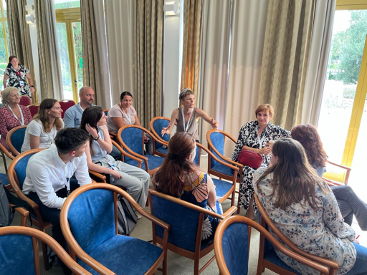
Participants unanimously emphasised the paramount importance of IAQ awareness, acknowledging the complexities in identifying pollution sources and obtaining accurate measurements. The workshops also highlighted a range of critical pollutants for IAQ, including particulate matter, carbon dioxide, volatile organic compounds, micro-plastics, and meteorological and humidity factors.
The views expressed and findings that emerged from the EDIAQI panel and workshop at the Air Protection Conference underscore the multifaceted nature of IAQ and its complex effects on health. The EDIAQI project takes pride in contributing to a diverse group addressing various dimensions of IAQ. The importance of events like the International Air Protection Conference 2023 is clear in terms of raising awareness, but it is crucial that the findings and research generated, contribute to the broader public discourse on IAQ. The IDEAL cluster is an ideal platform to contribute to broader public discourse by amplifying awareness, holistically filling knowledge gaps and subsequently informing effective legislation at both national and EU levels.
